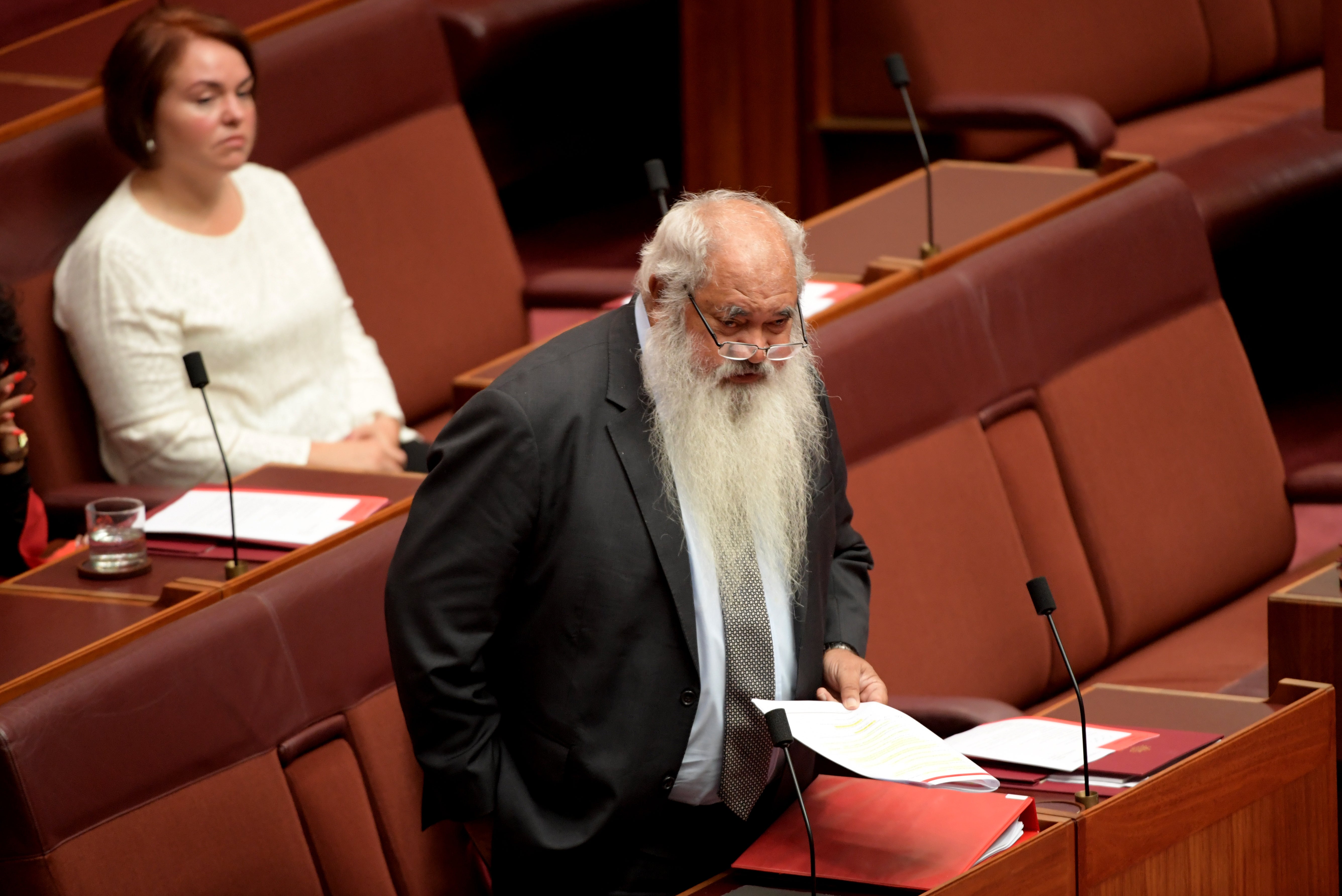The Australian government privately pressured Tony Blair in 1999 not to meet an Indigenous delegation led by Patrick Dodson, labelling them “troublemakers”, according to newly released government files.
Mr Dodson, a Yawuru elder and one of Australia’s most influential Indigenous leaders, later elected as an Australian Labour senator, is widely regarded as the “father of reconciliation”.
Australian officials feared the delegation would seek an apology from the Queen and raise the “historical failure of the British government to consult Australia’s Indigenous population during colonisation”, according to a report in the Guardian based on papers from the National Archives.
A memo from Mr Blair’s foreign affairs adviser, John Sawers, reportedly reveals that the Australian high commissioner, Philip Flood, urged Mr Blair not to meet the visiting Indigenous delegation.
The UK government was uneasy about the optics and feared diplomatic fallout, with Mr Sawers suggesting Mr Blair cite “diary problems” to avoid the meeting, an idea Mr Blair appeared to agree with.
“The Australians are pretty wound up about the idea of you seeing the Aborigines at all,” Mr Sawers reportedly wrote in a note to Blair, the outlet reported. “Their high commissioner rang me to press you not to see them: they were troublemakers – it would be like [the then Australian prime minister] John Howard seeing people from Northern Ireland who were trying to stir up problems for the UK.”
Mr Dodson has served as an adjunct professor at the University of Notre Dame in Broome, and he was recognised as a “National Living Treasure” in 2008. He also has received the Sydney Peace Prize.
In 2022, Mr Dodson was visibly moved to tears as he recalled meeting Queen Elizabeth II two decades ago.
Indigenous Australians still grapple with the lasting impact of British colonisation, dispossession, and systemic discrimination. Earlier this month, Australia’s first truth-telling inquiry revealed that the British committed genocide of the Aboriginal people in Victoria during their colonisation of the country.
The same memo also noted that meeting the delegation could complicate Blair’s position on a forthcoming request to meet Chinese dissident Wei Jingsheng. “It will be harder to avoid seeing Wei if you’re seeing Australian dissidents next week.”
Newly released National Archives files also revealed that Blair’s government quietly changed the rules for laying wreaths at the Cenotaph in 2004 to appease unionist sensitivities during Northern Ireland’s peace process. The shift reportedly came after a defection altered party standings, leaving the Democratic Unionist party (DUP) just short of eligibility under existing rules, prompting complaints and a rule change to maintain political balance.

The newly-released National Archive papers also revealed that Mr Blair was advised to repay thousands of pounds in discounts which he received on designer clothes.
Papers released to the National Archives show that No 10 officials recommended he should pay back more than £7,600 on items bought from designers Nicole Farhi and Paul Smith.
The discounts were negotiated by his wife Cherie’s controversial friend and style adviser, Carole Caplin, who bought clothes for Mrs Blair.
The papers also revealed that Mr Blair bitterly accused French president Jacques Chirac of trying to undermine UK efforts to put pressure on Zimbabwe’s dictatorial leader Robert Mugabe.
Papers released by the National Archives show Mr Blair erupted with anger when he learned Mr Chirac was insisting the Zimbabwean president should be allowed to attend an EU-Africa summit due to be held in 2003.
“But this is the opposite of what he said to me,” he scrawled in a handwritten note after No 10 officials told him Mr Chirac feared South African president Thabo Mbeki would stay away from the gathering unless Mr Mugabe was invited.
“Ultimately if France wants to take the heat on this they can and probably they are using it to damage the UK’s standing in Africa in the belief (mistaken) that Mugabe retains credibility.
“But we should be seen to do all we can to protest.”
The row came as Zimbabwe was caught up in a worsening spiral of violence and economic collapse after Mr Mugabe instigated a violent campaign to drive the country’s remaining white farmers from their lands.
Water industry may be added to list of sensitive business sectors, says minister
Ibiza Rocks cancels all events after two British men die at resort in a fortnight
Israel could face further sanctions if it does not agree Gaza ceasefire – Lammy
‘Devastating’ toxic algal bloom declared natural disaster in Australia
Fire breaks out on Virgin Australia plane mid-flight likely due to power bank
Significant archaeological site could be washed away by the 2100s







